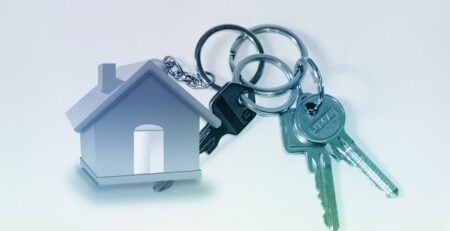An Introduction to Purchasing Leasehold
In England and Wales, purchasing leasehold is amongst the most popular means of owning a flat, maisonette or apartment. The second choice is freehold. In contrast to freehold, where the property is fully owned, a leasehold only provides you with the sole right to inhabit the property for the duration of the lease. Whenever a lease is originally born into being, it will be somewhere between 99 and 999 years.
Ground rent
Ground rent is paid to the landlord every year by the leaseholder. It is paid annually and might be as little as £10 or as much as several hundred pounds. In some situations, it can jump in cost very quickly. If this is the case, your solicitor should make you aware of this. But be ahead of the curve and ask how much you expect to pay and if you can expect any changes.
Service Charges
Like with ground rent, some funds will have to be earmarked for this. The cost of maintenance of the building is in the form of a service charge. It also includes communal areas and services, and these fees are generally paid in advance once a year, although the amount varies based on the structure, its age, and its condition. The cost of past service fees and whether major future spending plans are on the table, such as roof renovation, is a necessary question to ask your landlord.

Communal heating and elevators
It is hard to predict exactly how much it will cost to upkeep or replace things like these. Therefore, it is always a good idea to ask early if the property has a “reserve” or “sinking” fund. The purpose of these funds is to collect annual fees to accumulate money to pay for large expenditures and thereby spread the cost.
Block Maintenance
If you are purchasing leasehold, your rights and duties are defined in the lease like any other tenancy contract. In addition, the landlord, often a freeholder, has their own rights and duties set out.
Like any structure, interior and external upkeep is needed for the block that contains the flats. It might also include shared heating or elevators that need to be serviced. Normally, freeholders are responsible for any required maintenance. This maintenance is included in the service charge, though. Typically, the free holder employs managers to administer the building.
Building management complaints
Many freeholders opt to have an agent handle routine management duties, such as paying building insurance, scheduling regular and occasional repairs, and handling inquiries from buyers.
According to legislation, in buildings containing flats, management agents must register with either the Property Ombudsman or Property Redress Scheme so that leaseholders may complain to an impartial authority about the service they received.
Leasehold in retirement developments
There are potential extra costs associated with retirement developments. Services or amenities, such as a warden or an emergency telephone operated 24 hours a day, may be available. These could be covered by the service charge.
Event fees
In retirement flats, event fees are not unusual to find. It is paid to the freeholder when the apartment is sold or if the apartment is sub-let. Usually, the amount is determined by the sales or rent price of a sub-let. It is important to familiarise yourself with this fee and make sure your solicitor finds out if they apply and what they are based on.
Fire risks
By reviewing the fire risk assessment of the building, your solicitor should get a copy from the building’s manager. Every block of flats in England and Wales is required to conduct a fire safety risk assessment on a regular basis which covers:
- How probable is the starting of a fire.
- What is the procedure if a fire happens.
- Ways to reduce the chances of a fire igniting or spreading.
- Can changes be made to a leasehold property once purchased?
Alterations to leasehold flats
Some leases prohibit changes entirely, some allow changes after permission is given, while others do not have limitations. You should confirm before you purchase whether you need the lessor’s approval before making changes. However, the managing agent who works for the landlord may have to be approached first.
Sub-letting leasehold flats
Some leases do not permit sub-letting, some need approval and others have no restrictions. Because leases vary in scope, it is necessary to verify with the lessor before buying whether your property has limitations or sub-letting terms that you need to be aware of.
Leasehold expiry
Leaseholds have a beginning and an end, just like any tenancy. Before you purchase, make sure you know how much time is left, since as time passes, it will become harder to sell. Leases generally begin at or over 99 years and will be reduced every year. It’s best if the leasehold should have more than 80 years left on it. Lenders may need a specific lease duration, but each has its own set of criteria. Most of them outline their criteria in UK Finance’s Mortgage Lender’s Handbook. Your estate agent should be able to provide you with information on how long the lease term is left.
After a few short years of owning your leasehold, you will have the legal right to extend your lease. But be prepared because the cost will likely be high.
ARE YOU READY TO START INVESTING?
Subscribe to our mailing list now for exclusive deals, investment guides and the latest information from the property market.







